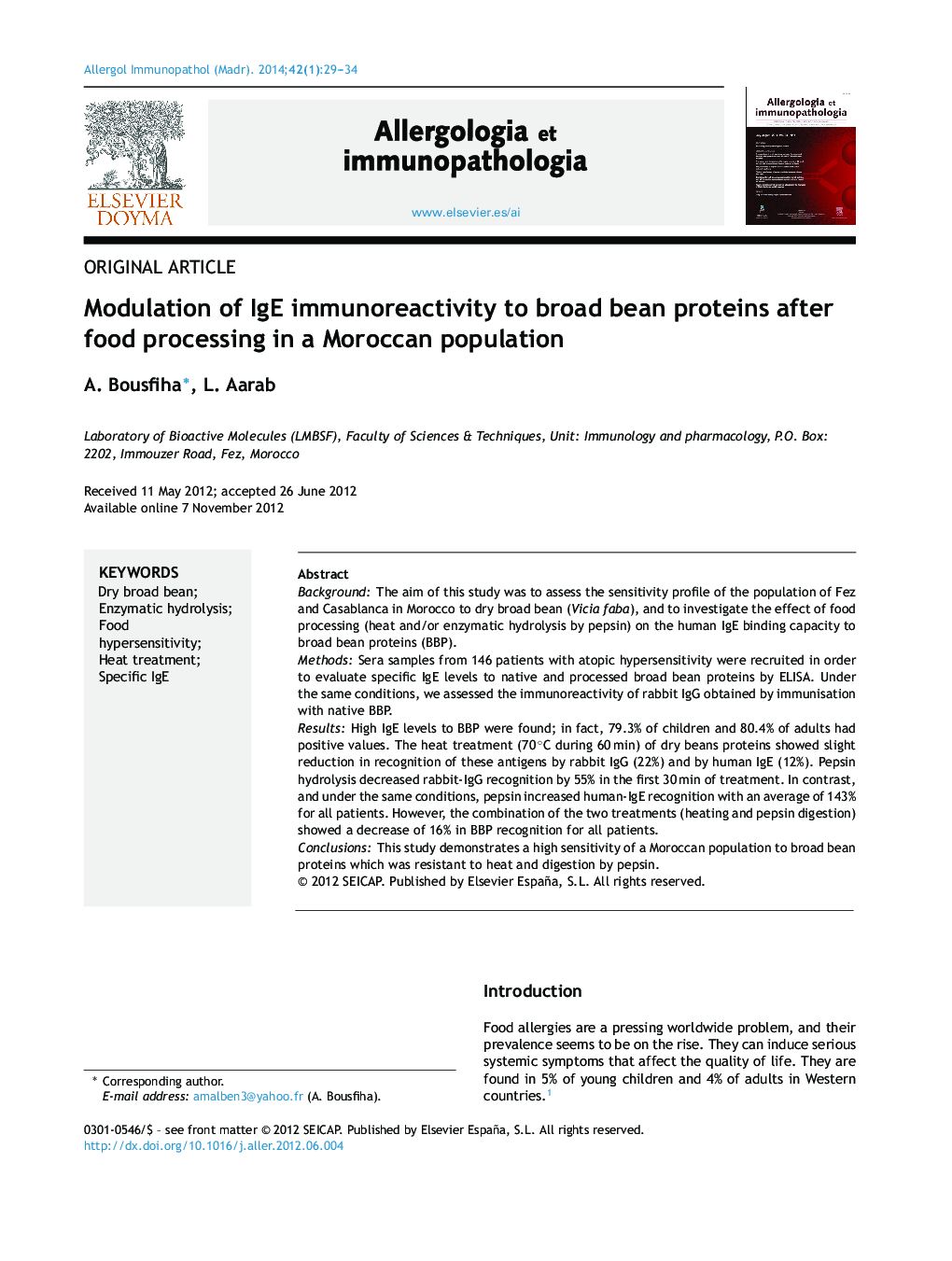| Article ID | Journal | Published Year | Pages | File Type |
|---|---|---|---|---|
| 3339686 | Allergologia et Immunopathologia | 2014 | 6 Pages |
BackgroundThe aim of this study was to assess the sensitivity profile of the population of Fez and Casablanca in Morocco to dry broad bean (Vicia faba), and to investigate the effect of food processing (heat and/or enzymatic hydrolysis by pepsin) on the human IgE binding capacity to broad bean proteins (BBP).MethodsSera samples from 146 patients with atopic hypersensitivity were recruited in order to evaluate specific IgE levels to native and processed broad bean proteins by ELISA. Under the same conditions, we assessed the immunoreactivity of rabbit IgG obtained by immunisation with native BBP.ResultsHigh IgE levels to BBP were found; in fact, 79.3% of children and 80.4% of adults had positive values. The heat treatment (70 °C during 60 min) of dry beans proteins showed slight reduction in recognition of these antigens by rabbit IgG (22%) and by human IgE (12%). Pepsin hydrolysis decreased rabbit-IgG recognition by 55% in the first 30 min of treatment. In contrast, and under the same conditions, pepsin increased human-IgE recognition with an average of 143% for all patients. However, the combination of the two treatments (heating and pepsin digestion) showed a decrease of 16% in BBP recognition for all patients.ConclusionsThis study demonstrates a high sensitivity of a Moroccan population to broad bean proteins which was resistant to heat and digestion by pepsin.
